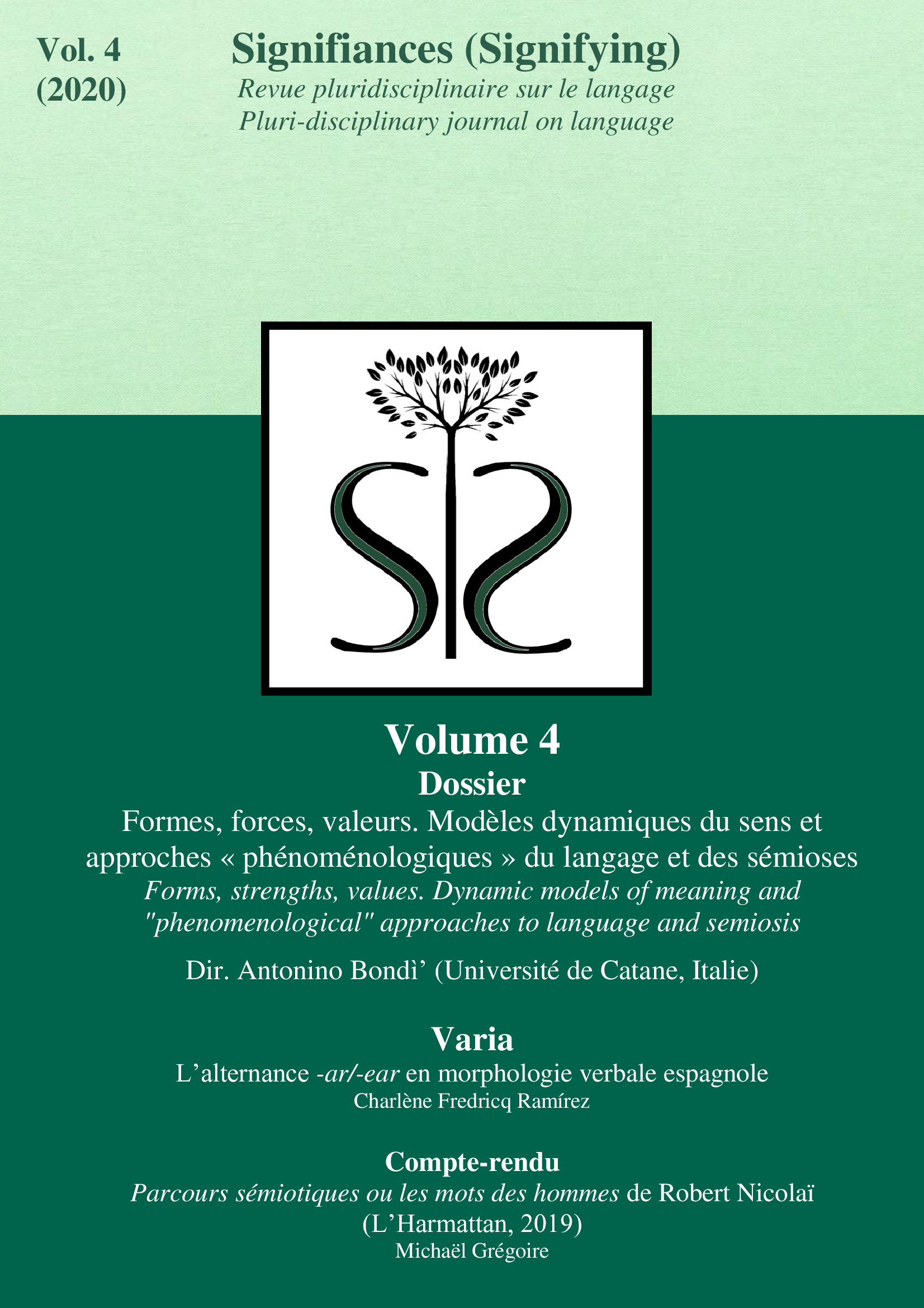L’avènement de la forme Mutations, interactions, émotions et imperfections.
DOI:
https://doi.org/10.52497/signifiances.v4i1.265Abstract
We go through several conceptions of "form" (Plato, Aristotle, Gestalt Theory, Hjelmslev, Greimas) to understand how it may be seized, how it makes an event for a subjectal and sensitive center, and why all this implies that forms must be imperfect to be seizable. We will evoke in this respect two types of semiotic situations where forms appear unstable and relative to a subjectality: that of semiotic analysis, inspired by Hjelmslev and Greimas, and that of the confrontations between Umwelten and forms of life. The instability of the form is then attributed, as the case may be, either to changes of point of view in the process of analysis, or to any actor, the subjective center of forms of living, confronted with one another. to others (overlap, alternative, conflict, etc.). The advent of form is then rooted in the anthropological and bio-semiotic components of the construction of knowledge and meaning.


